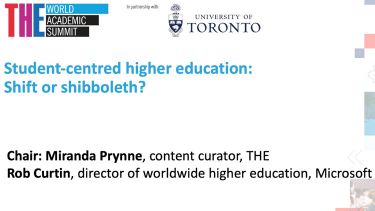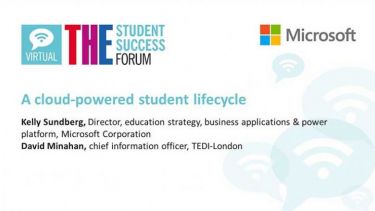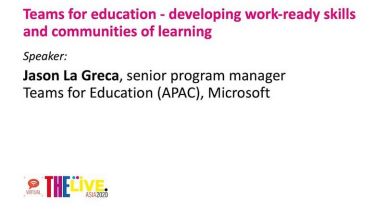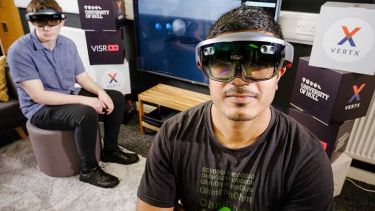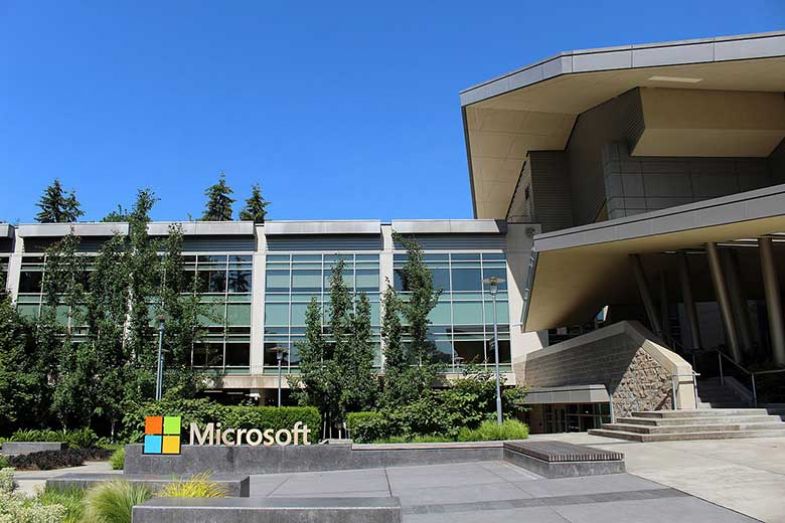
Higher education leaders met at Microsoft’s Executive Briefing Center to discuss research, artificial intelligence and collaboration with industry
Trying out an Xbox simulator is probably not a typical day in the office for the IT director of a higher education institution, but on a visit to Microsoft’s Executive Briefing Center in Redmond, Washington, in November 2018 it was one of many experiences on the agenda.
Microsoft took 13 CIOs and IT leaders from UK HE to its state-of-the-art Seattle headquarters to discover more about its technology road map and to witness how Microsoft is managing its own digital transformation. Delegates came from a wide range of institutions with a diverse set of challenges and spent time on a campus that is akin to a small city, employing more than 40,000 people.
The itinerary for the three-day visit provided the group with the chance to explore industry trends, discuss business opportunities and hear about what Microsoft has in development. It also included sessions about using cloud technology to support research, the risks and opportunities offered by artificial intelligence – and how technology can support collaboration between teams of academics, students and professional services staff. Robert Ford, senior digital evangelist at Microsoft, gave the leaders a unique insight into how the company invests and deploys technology.
“I was really fascinated by the story of how Microsoft has been turning around this massive organisation with a deeply entrenched culture in order to better compete in a world that is technologically very different from the one envisaged by the founders,” says Kurt Weideling, director of information systems and digital services at Manchester Metropolitan University.
The visit offered senior IT leaders the opportunity to step out of the day-to-day and consider the role of technology within their institution. “Digital isn’t a product, it’s a mindset,” explains Justin Walton, a senior account executive from Microsoft UK who was involved in setting up and hosting the trip. “Most of our discussions were not around specific products: the delegates were interested in how we’ve transformed our own business and how we do business in an ethical way.”
One of the most striking aspects of the trip was how keen the group were to share their learnings and challenges with each other. “They all recognise the need for transformation but are there to help each other in the pursuit of that. They’re not hung up on whether transformation means tearing down buildings and building a new digital campus – although this may be the case for some. Everyone’s coming at it from a different position,” adds Walton.
A highlight of the trip was a visit to the Envisioning Centre Innovation Lab, which doubles as a prototyping lab and showcase for Microsoft’s new technologies. The design of the centre is deliberately immersive, with futuristic yet real-life scenarios staged in office, home, retail and restaurant environments, meaning that visitors can see how these new developments will transform the way we live, work and play.
“This gives them a chance to see not just what’s on the agenda for the next 12 to 18 months, but how the digital world might look five years or more down the line,” says Joel Bloomfield, industry lead for higher education at Microsoft UK. With developments in artificial intelligence and machine learning likely to impact how universities research and interact with students – not to mention how institutions are designed and staffed – these insights will prove crucial.
Walton says: “Many of these CIOs have the authority and budget to make meaningful decisions about technology now, but they also have their eyes on longer-term investments – this helps them build their case.”
Deeper insights and the chance to reflect also will also help these CIOs to boost the perception of IT within both their institution and higher education as a whole. “Doing something like this gives them the opportunity to show that IT can be a strategic asset – it’s not just about fixing things. In future there will be no discussions about ‘the business’ and ‘IT’ as two separate entities, as technology is front and centre of what the organisation does,” he adds.
John Murphy, director of digital technologies at Nottingham Trent University, says that the insights from the trip will help his team embed digital processes. “The focus will be on successful adoption of technologies, real process change, digital skills for our staff and students and new skills for those in IT and digital,” he explains. “The word digital will disappear in the future as we no longer distinguish between our ‘tech’ and our ‘normal’ lives.”
Find out more about Microsoft in Education.


